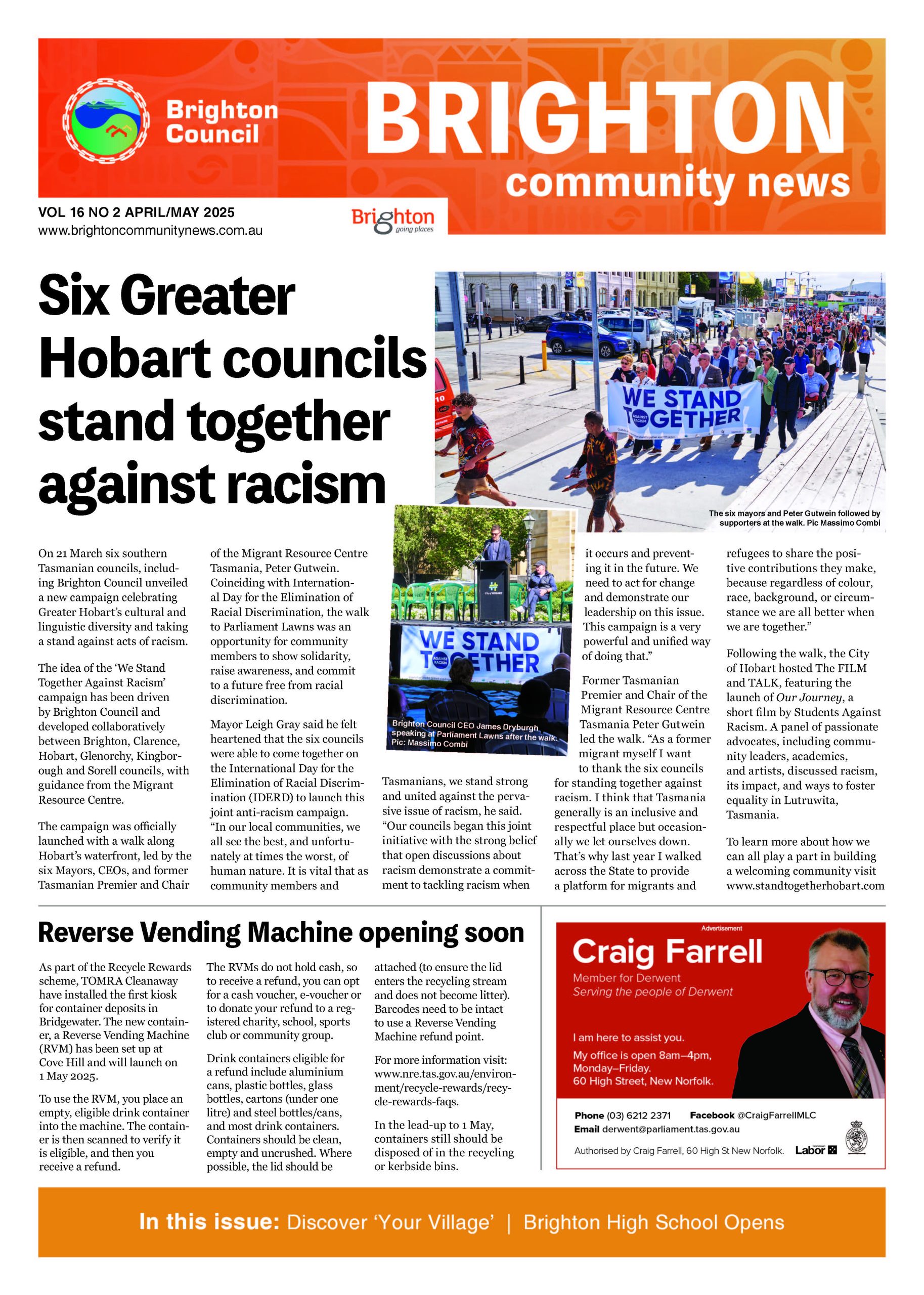The benefits of practising zero waste
by Martin Blackwell
In just a few short years, the McRobie’s Gully Waste Management Centre in South Hobart is anticipated to reach its full capacity. By the year 2030, the site is destined to be closed. It has been cited that a whopping 25,000 tonnes of waste is discarded at the South Hobart facility annually.
Households can discard up to approximately half a ton of waste per year. Individually there are ways and means we can help to alleviate the enormous amount of waste that eventuates as landfill. Of the various environmental issues that we contend with in our local community, discarded waste is one that is simplest to be aware of, due to the issue being so visual. Much of the waste that is discarded locally is organic matter. Organic matter is a culprit for producing harmful emissions and is one of the first issues we can help to alleviate.
Other problems related to waste management can be more complex. When shopping at our local supermarket, choosing a zero waste approach to purchasing may sometimes seem challenging. Within various industries, waste impact can be unavoidable at times with certain types of packaging.
Zero waste isn’t the solution to all community issues. However, being aware of environmental and the personal consequences of accumulating certain types of ‘stuff’, can ensure fulfilling changes and adjustments which will benefit you directly.
There are many benefits to zero waste purchasing which will take you on an adventure of interesting, healthy and/or hard to find products. If a product is organic at your shop, and certified by its suppliers, you will most likely be helping eliminate the use of plastic packaging. By researching zero waste methods, we are presented with a means to help students to appreciate the community they dwell in and provide inspiration to go about day-to-day activities in a more sustainably friendly way. Every month, we see something new and innovative that’s helping to tackle the issue that is single-use plastic. If you are removing waste from your home, business or an event, be sure to determine what can be recycled, reused or composted first. Remember to check and look for alternatives to items that would otherwise end up in landfill at our local waste management centres. You are helping to reduce plastic waste if you bring your own bags to supermarkets. Make sure you stash your own carry bag in your car so that you remember! Choose paper over plastic at each opportunity. Avoid plastic bottles, choose aluminium or glass. Buy your items in boxes, rather than in plastic containers.
Support your local farmers market! Buy all your fruit and vegetables from one of our amazing markets. There are some great ones around Hobart, such as the Farm Gate Market in Bathurst Street Hobart which takes place every Sunday. Or visit the Waterbridge Food Co-Op, which is located at the Gagebrook Community House, and is open Monday to Friday 10am until 2pm. The Material Institute also hosts an event every Thursday at Bond Place Gagebrook, where healthy communal meals and art workshops are delivered for students and the local community.
Zero waste initiatives support a strong local economy, assisting with policy making that protects our natural resources and supports the sustainable use of materials. For our local area, community programs that are collaborative help to facilitate the creation of jobs and products. At a global level, people as a part of their day-to-day activities are more motivated to eliminate discarded rubbish in a way that is more respectful of their environment and of others.
The way you collect and dispose of waste can have a huge impact on the environmental footprint of your home, business or event. By choosing a more sustainable means of living, you are choosing to pass good habits onto those that are close to you. You’re also supporting an independent small business and social enterprise within our local Brighton Community.
“Buy less. Choose well. Make it last.”

